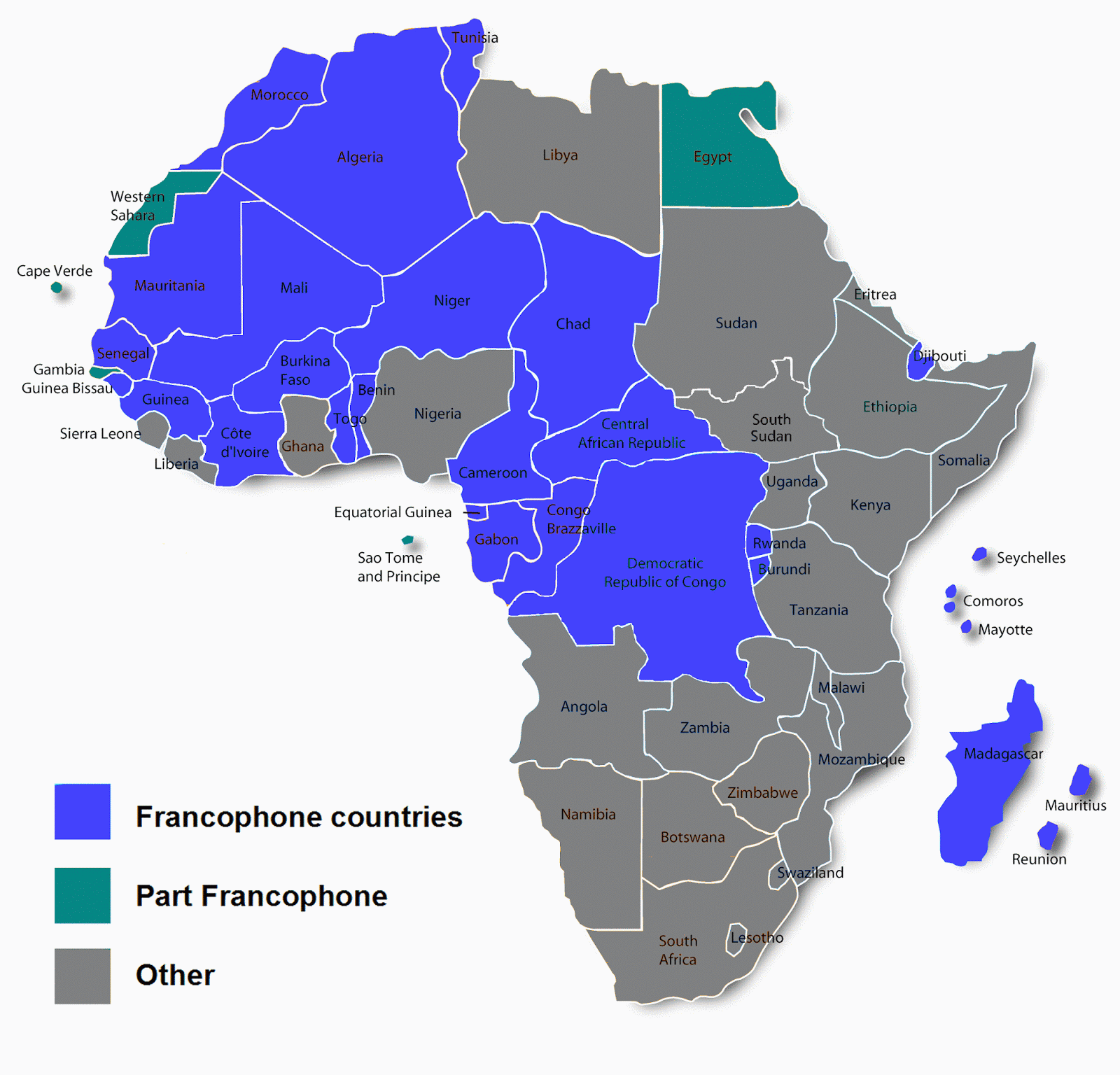Africa Francophone countries are a diverse group of nations where French is an official language, significantly influencing their culture, politics, and economy. With a rich history and a vibrant tapestry of cultures, these countries offer a unique glimpse into the intersection of African and French heritages. In this article, we will explore the geographical, cultural, and socio-economic aspects of these nations, providing insights into their significance within the African continent.
The term "Francophone" refers to countries where French is spoken, either as a primary or secondary language. In Africa, this includes a range of nations from West to Central Africa, each with its distinctive characteristics. Understanding the dynamics of these countries is essential for anyone interested in global politics, economics, or cultural exchanges.
This article aims to be a valuable resource for those seeking to learn more about Africa Francophone countries, their contributions to the global landscape, and the challenges they face. We will examine their demographics, cultural practices, economic activities, and the role of language in shaping their identities.
Table of Contents
- What Are Francophone Countries?
- List of Africa Francophone Countries
- Cultural Significance of Francophone Countries
- Economic Overview
- Challenges Faced by Francophone Countries
- The Future of Francophone Nations
- Case Studies
- Conclusion
What Are Francophone Countries?
Francophone countries are those where French is an official language or is widely spoken. This term encompasses a wide range of nations across various continents, but it is particularly significant in Africa, where the influence of colonial history has left a lasting impact.
Historical Context
The spread of the French language in Africa can be traced back to the colonial period when France established its colonies across the continent. This historical context has shaped the political and social landscapes of these nations.
Global Francophonie
The Organisation Internationale de la Francophonie (OIF) is a key player in promoting the French language and culture globally. The OIF includes many member states from Africa, highlighting the importance of the Francophone community.
List of Africa Francophone Countries
Below is a list of African countries where French is an official language:
- Benin
- Burkina Faso
- Burundi
- Cabo Verde
- Cameroon
- Central African Republic
- Chad
- Congo, Republic of the
- Congo, Democratic Republic of the
- Djibouti
- Equatorial Guinea
- Gabon
- Guinea
- Ivory Coast (Côte d'Ivoire)
- Luxembourg
- Madagascar
- Mali
- Niger
- Rwanda
- Seychelles
- Senegal
- Togo
Cultural Significance of Francophone Countries
The cultural landscape of Africa Francophone countries is rich and diverse, influenced by indigenous traditions as well as French culture. The French language serves as a unifying force, facilitating communication and cultural exchange among different ethnic groups.
Art and Literature
Francophone culture has produced numerous influential artists and writers, contributing significantly to the global arts scene.
Music and Dance
Music genres such as Afrobeat and Soukous have roots in Francophone countries, showcasing the rich musical heritage of these nations.
Economic Overview
Many Africa Francophone countries are rich in natural resources, which significantly influence their economies. However, they also face challenges such as poverty and political instability.
Key Industries
- Agriculture
- Mining
- Tourism
Trade Relations
Francophone countries often engage in trade with other Francophone nations, creating a network that bolsters economic ties.
Challenges Faced by Francophone Countries
Despite their rich cultural heritage and resources, many Francophone countries face significant challenges, including political instability, economic inequality, and educational shortcomings.
Political Instability
Several nations experience frequent changes in government, leading to uncertainty and unrest.
Economic Inequality
Income disparity is a pressing issue, with wealth concentrated in the hands of a few while many continue to live in poverty.
The Future of Francophone Nations
The future of Africa Francophone countries is contingent upon addressing the challenges they face while capitalizing on their cultural and economic strengths.
Educational Reforms
Investing in education is crucial for empowering the next generation and fostering economic growth.
Strengthening Global Ties
Enhancing international partnerships can provide opportunities for development and cultural exchange.
Case Studies
To illustrate the dynamics of African Francophone countries, we will look at specific examples, such as Senegal and Ivory Coast, examining their unique cultural and economic contributions.
Senegal: A Cultural Hub
Senegal stands out for its vibrant music scene, particularly in genres like Mbalax, which blends traditional African rhythms with global influences.
Ivory Coast: Economic Powerhouse
Ivory Coast is known for its agriculture, especially cocoa production, making it one of the largest producers in the world.
Conclusion
In conclusion, Africa Francophone countries play a crucial role in the cultural and economic landscape of the continent. Understanding their complexities is essential for appreciating their contributions to the world. We encourage readers to engage with this topic further by leaving comments, sharing this article, or exploring related content on our site.
Final Thoughts
We hope this article has provided valuable insights into the Africa Francophone countries. Their rich history and culture are worth exploring, and we invite you to return for more informative content in the future.



